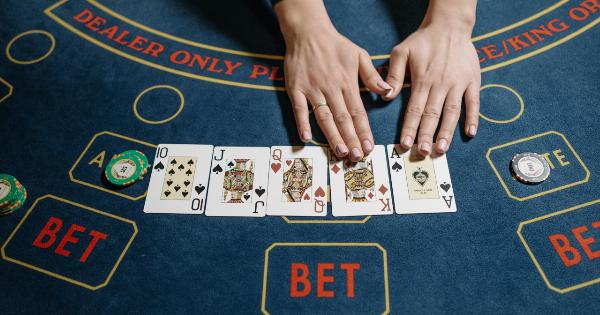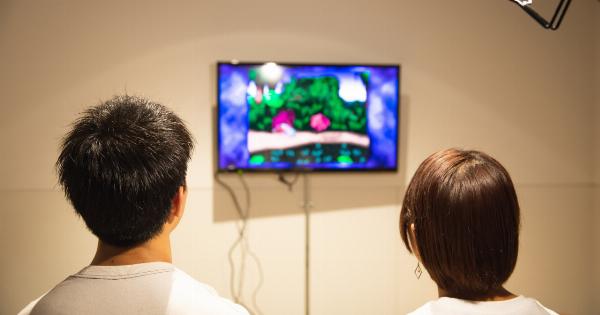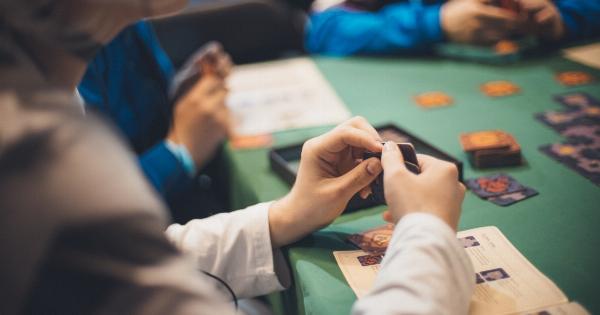Online gaming has been a popular pastime for decades, with millions of players from all around the world spending countless hours in virtual worlds, completing quests, defeating bosses, and connecting with other players.
For many, these games are simply a fun way to unwind after a long day or to connect with like-minded individuals who share a passion for gaming. However, for others, online games become more than just a game, transforming into an obsession that can have a significant impact on their daily lives.
What Makes Online Gaming So Addictive?
The addictive nature of online gaming can be attributed to a variety of factors, including the social nature of the games, the sense of achievement and progress, and the escapism that video games can provide.
Many online games rely heavily on social interaction, allowing players to join clans or guilds, make friends, and build a network of contacts within the game. For some, this social aspect of gaming can be a driving force that keeps them coming back for more.
In addition to the social aspect, many online games also offer a sense of achievement and progress. Players can earn experience points, level up, and unlock new abilities or items as they progress through the game.
For some, this sense of accomplishment can be a major motivator to keep playing, as they strive to reach new levels of success.
Finally, online gaming can offer players a way to escape from the stresses and challenges of their everyday lives.
Many video games offer immersive worlds and engaging storylines that players can lose themselves in, experiencing new adventures and exploring new places. For some, this sense of escapism can be addictive, leading them to spend more and more time playing the game.
When Does Online Gaming Become More Than Just a Game?
While online gaming can be a fun and rewarding hobby, there comes a point when it can become more than just a game. For some, this transition is gradual, with gaming gradually taking over more and more of their time and attention.
For others, the line between hobby and obsession can be much more blurred.
One of the key signs that online gaming may be becoming more than just a game is when it starts to interfere with other areas of your life.
This could be as simple as missing out on sleep to play a game or neglecting responsibilities such as work or school in order to play. It could also include neglecting friends and family or withdrawing from social activities in favor of spending more time online.
Another sign that online gaming may be becoming an obsession is when it starts to affect your mental health.
Many people use video games as a way to cope with stress or anxiety, but when gaming becomes the only way to cope and starts to negatively impact your mental well-being, it may be time to take a step back.
The Risks of Excessive Online Gaming
Excessive online gaming can have a variety of negative effects on both physical and mental health. Some of the most common risks include:.
1. Physical Health Risks
Sitting in front of a computer for extended periods of time can lead to a variety of physical health problems, including:.
- Obesity
- Back pain and posture problems
- Carpal tunnel syndrome and other repetitive strain injuries
- Eyestrain and other visual problems
2. Mental Health Risks
Excessive gaming can also have a negative impact on mental health, leading to:.
- Depression and anxiety
- Social isolation and loneliness
- Aggression and hostility
- Addiction and dependence
3. Financial Risks
Gaming can also be a financial drain, with some players spending hundreds or even thousands of dollars on in-game purchases, subscriptions, and other expenses. This can lead to financial stress and other problems if gaming becomes an addiction.
Seeking Help for Online Gaming Addiction
If you or someone you know is struggling with online gaming addiction, there are a variety of resources available to help. These may include online support groups, counseling services, and addiction treatment programs.
The key is to recognize the problem and take steps to address it before it spirals out of control.
By setting limits on gaming time, seeking out alternative stress relief methods, and prioritizing other areas of your life, it is possible to maintain a healthy balance between online gaming and other aspects of your life.
Conclusion
Online gaming can be a fun and engaging hobby, providing a way to connect with other players and explore immersive virtual worlds.
However, when gaming starts to interfere with other areas of your life or becomes an addiction, it can have serious negative consequences on both physical and mental health. By understanding the signs of online gaming addiction and seeking help when needed, it is possible to maintain a healthy balance and enjoy gaming without it becoming more than just a game.































